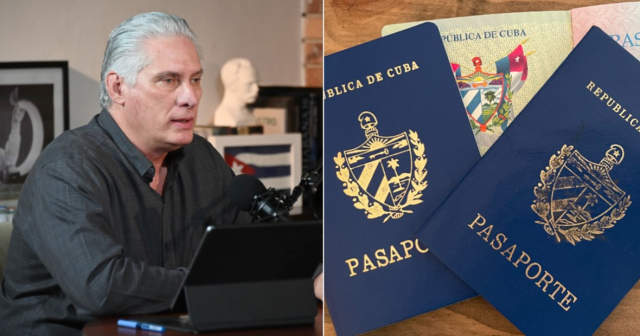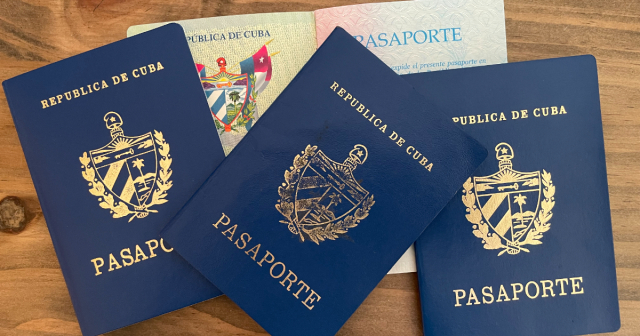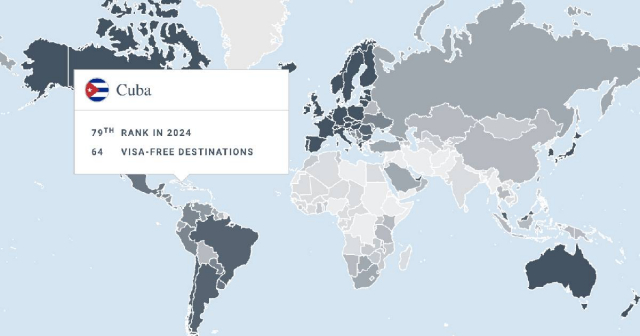The Citizenship Bill published this Monday by the National Assembly of People's Power of Cuba (ANPP) contemplates, among its articles, the renunciation of citizenship for Cubans with a second nationality and residing abroad.
The publication of the document has sparked intense conversation on social media, where users, independent media outlets, and experts are analyzing the implications of the bill for Cuban citizens.
Among the most debated topics is the renunciation of Cuban nationality, an issue that has always been prevalent in the collective imagination of Cuban exiles, with many of them questioning the current requirement to enter the national territory as a Cuban citizen.
This condition requires all emigrants (regardless of whether they hold a second nationality) to enter Cuba as Cuban citizens, therefore subject to the current legal system of the Cuban regime, which punishes citizens who exercise their right to freedom of expression and demonstration with harsh prison sentences, among other scenarios.
For this reason, many Cuban exiles have demanded and expressed their willingness to renounce their Cuban citizenship, and demanded the right to travel to Cuba as foreign citizens, without being subject to national legislation or its punitive regimes.
Currently, matters relating to "citizenship" are addressed in Law No. 1312, the "Migration Law" of September 20, 1976, amended by Decree-Law No. 302 of 2012. This law regulates the procedures related to the acquisition, loss, and recovery of Cuban citizenship.
The Citizenship bill presented now by the Cuban regime includes what is regulated by Decree-Law No. 302 regarding Cuban citizenship. According to Colonel Mario Méndez Mayedo, head of the Identification, Immigration, and Foreigners Department of the Ministry of the Interior, the novelty would be that the State "has to accept the renunciation" if the applicant meets the requirements provided for in the Law.
Just like today, with the new Law, the interested party would have to submit a formal resignation request from abroad, holding another nationality. If the required requirements are met, according to Méndez Mayedo, "the Cuban State must accept that resignation."
"The request is only accepted when made from abroad. It is an act of high responsibility [from which, the Cuban citizen] becomes a foreigner. There is no intention of disapproving a resignation," stated the official from MININT in front of the cameras of Cuban television.
However, he emphasized time and time again the "high responsibility" that requesting citizenship renunciation entails. "Let's sit down and think. Once the renunciation is approved, the Cuban state has no responsibility with that person, because they are a foreigner. They are visiting us as a foreigner. And the laws that apply are those of a foreigner."
In addition to resignation, the Law project regulates a series of important concepts such as "effective citizenship," "acquisition of Cuban citizenship," or "loss of Cuban citizenship, whether by deprivation or renunciation."
In relation to this last point, the project establishes other conditions such as being over 18 years old, not having debts with the Cuban state or its institutions, not being serving a prison sentence or being persecuted for committing a crime in the national territory or abroad.
Among the necessary documentation to initiate the process, it indicates: An affidavit granted before a Notary Public formalizing the resignation request. The certification of citizenship of another country, issued by the corresponding authority. A certification of residency in the country where the consulate in which the request is being submitted is located.
Also, a certification of criminal and police records from the Republic of Cuba and from the country where you are a resident. As well as a certification issued by the corresponding authorities stating that you have no debts with the Cuban State or its institutions.
What do you think?
COMMENTFiled under:






